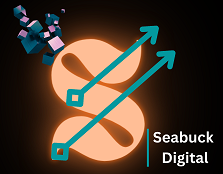
Introduction to AI in Content Creation
What is AI Writing Technology?
Imagine having a robot that can write blog posts at lightning speed. That’s AI writing in a nutshell. These tools use natural language processing (NLP) and machine learning to analyze millions of documents, understand sentence structures, and spit out coherent paragraphs—fast.
How AI Content Generators Work
AI models like GPT-4 are trained on vast datasets pulled from the internet. They predict what words should come next based on your prompt. The more advanced the model, the better it can mimic human writing patterns, complete thoughts, and even inject humor or tone.
Rise of AI Tools like ChatGPT and Jasper
Tools like ChatGPT, Jasper, and Copy.ai have become staples in the SEO and content marketing world. They’re great for quick drafts, idea generation, and even brainstorming meta titles and outlines. But… are they enough to replace a human? Can AI Replace Human Writers?
The Role of Human Writers in SEO
Human Creativity vs. Algorithmic Logic
Here’s the truth: AI doesn’t think. It predicts. Human writers, on the other hand, create. They tap into emotion, tell stories, and connect with readers in ways machines just can’t replicate—yet.
Understanding Search Intent and Emotional Resonance
Good SEO writing isn’t just about keywords. It’s about understanding what the user really wants. Are they looking for a how-to guide or just browsing? Human writers can read between the lines and tailor content to strike the right chord.
Crafting for E-E-A-T and Google’s Quality Standards
Google’s E-E-A-T (Experience, Expertise, Authoritativeness, and Trustworthiness) framework demands high-quality, well-researched content. While AI can mimic this, it often lacks real-world experience—something Google values more than ever in 2025.
Pros of AI Content for SEO
Speed and Scalability
Need 50 product descriptions overnight? AI has your back. It can churn out thousands of words in minutes, something no human can match.
Cost-Effective for Bulk Content
Let’s be honest, hiring writers isn’t cheap. AI offers a budget-friendly option for startups and agencies who need lots of content fast.
Consistency and Language Accuracy
AI rarely makes typos and tends to maintain a consistent tone across multiple articles. That’s a plus if you’re managing multiple websites or brands.
Cons of AI Content for SEO
Lacks Original Thought and Human Touch
AI content can feel… robotic. It may hit the right keywords but still fall flat in engagement. Readers can often tell when something was written by a machine.
Risk of Duplicate or Fluffy Content
AI often recycles ideas and phrases. It might unintentionally produce content that’s too similar to what’s already online, risking SEO penalties or user disinterest.
Limited Understanding of Context or Nuance
Sarcasm, idioms, cultural references? AI struggles with these. It can also misinterpret complex queries or oversimplify nuanced topics.
Where AI Excels in SEO Writing
Product Descriptions and Metadata
Short-form, structured content like product descriptions, meta titles, and image alt texts are where AI shines. It’s precise and efficient.
Generating Initial Drafts or Content Ideas
AI can beat writer’s block in seconds. Just prompt it with a topic, and you’ll have an outline or first draft to work from.
Optimizing Existing Content
Tools like SurferSEO and MarketMuse integrate AI to help optimize for keyword density, semantic relevance, and structure—perfect for refreshing old posts.
Where Human Writers Still Dominate
Storytelling and Brand Voice
Branding requires a voice that reflects personality. Humans bring authenticity and flair that AI just can’t replicate—at least not consistently.
Deep-Dive Topic Expertise
A skilled human writer can explain niche topics with clarity and authority. AI might gloss over the surface but struggles with depth.
Link Building and Relationship-Driven Content
Outreach emails, guest posts, and influencer collaborations demand emotional intelligence. That’s human territory, no question.
SEO Performance: AI vs. Human Content
Engagement Metrics and Bounce Rates
AI-written pages might rank, but do they retain users? Often, bounce rates are higher for purely AI-generated content due to lack of engagement.
Time on Page and Reader Satisfaction
Well-crafted human articles tend to keep readers hooked longer. They tell stories, ask questions, and offer relatable insights.
Conversion Rate Comparisons
A sales page written by a skilled copywriter can convert at double or triple the rate of an AI-written one. Words matter—and how they’re used matters more.
Google’s Perspective on AI-Generated Content
Official Google Guidelines on AI Content
As of 2024, Google stated it doesn’t penalize AI content just for being AI-written. What matters is quality. Spammy, low-effort AI content? That’s a no-go.
Impact on Indexing and Ranking
High-quality AI content can rank, but Google emphasizes originality, accuracy, and value. Simply rephrasing the top 10 results won’t cut it.
Penalties or Preferences?
There’s no blanket penalty—yet—but many SEO experts suspect Google may start flagging obvious AI content in future updates.
Ethical Concerns and Content Authenticity
Transparency with Readers
Should readers know a robot wrote what they’re reading? Some argue yes. Others see it as just another tool. But transparency builds trust—always.
Authorship and Responsibility
If an AI makes a mistake, who’s liable? Humans need to review and fact-check everything. Ultimately, responsibility lies with the publisher.
The Plagiarism and Fact-Checking Problem
AI pulls from existing content, so originality can be murky. Plus, it’s prone to “hallucinating” facts. Always verify.
The Future of AI in Content Marketing
Human-AI Collaboration Models
The future isn’t AI vs. humans—it’s humans with AI. Think of it like Iron Man’s suit. The power is in the partnership.
AI as a Writing Assistant, Not Replacement
Treat AI like an intern. It’s great for first drafts and research, but needs supervision, editing, and polish.
Skills Writers Need in an AI-Driven Era
Adaptability, critical thinking, and storytelling will define the next-gen content writer. AI can write. Humans connect.
Case Studies and Industry Examples
Brands Using AI Successfully
eCommerce giants use AI for scaling product pages. News sites use it for financial summaries. The key? Low-risk, high-volume areas.
Brands Sticking to Human Content
High-end B2B firms and personal brands tend to favor human-written thought leadership to build trust and authority.
Mixed Models: The Best of Both Worlds
Many agencies blend AI with human editors—AI drafts, humans enhance. It’s efficient and effective.
How to Use AI Ethically in SEO Content Strategy
Setting Editorial Guidelines
Even with AI, set tone, voice, and accuracy standards. Don’t let the bot run wild.
Verifying AI-Generated Facts
Always check stats, names, and quotes. AI is smart, but not always right.
Building a Hybrid Workflow
Use AI to scale, but keep humans in the loop for editing, final judgment, and quality control.
Final Verdict: Can AI Replace Human SEO Writers?
Summary of Key Differences
AI is fast, scalable, and cost-effective. Humans are creative, strategic, and emotionally intelligent. Both have strengths—and weaknesses.
The Verdict for 2025 and Beyond
No, AI won’t replace human writers anytime soon. But the best SEO teams will use it as a tool—not a crutch—to create smarter, faster, and better content.
Conclusion
AI is a game-changer, no doubt. But when it comes to writing content that truly resonates, converts, and ranks long-term, humans still lead the charge. Smart marketers won’t fear AI—they’ll collaborate with it. The future of SEO writing isn’t man vs. machine—it’s man with machine.
FAQs
Q1: Can AI content rank on Google?
Yes, as long as it’s high-quality, original, and valuable to users. Google judges content by quality—not authorship.
Q2: What kind of SEO content is best suited for AI?
Product descriptions, FAQs, meta tags, and basic blog outlines work well for AI generation.
Q3: How can writers future-proof their careers against AI?
Focus on creativity, storytelling, niche expertise, and emotional intelligence—skills AI can’t replicate.
Q4: Is it okay to publish AI content without edits?
No. Always review, fact-check, and polish AI content before publishing. Unedited AI copy risks accuracy and trust.
Q5: Which is better for long-term SEO—AI or human writers?
Human writers provide the edge in engagement and trust. Use AI as a tool, not a replacement.
Read More:
Will AI-Generated Content Rank in 2025?
Ultimate Guide to Link Building in 2025

